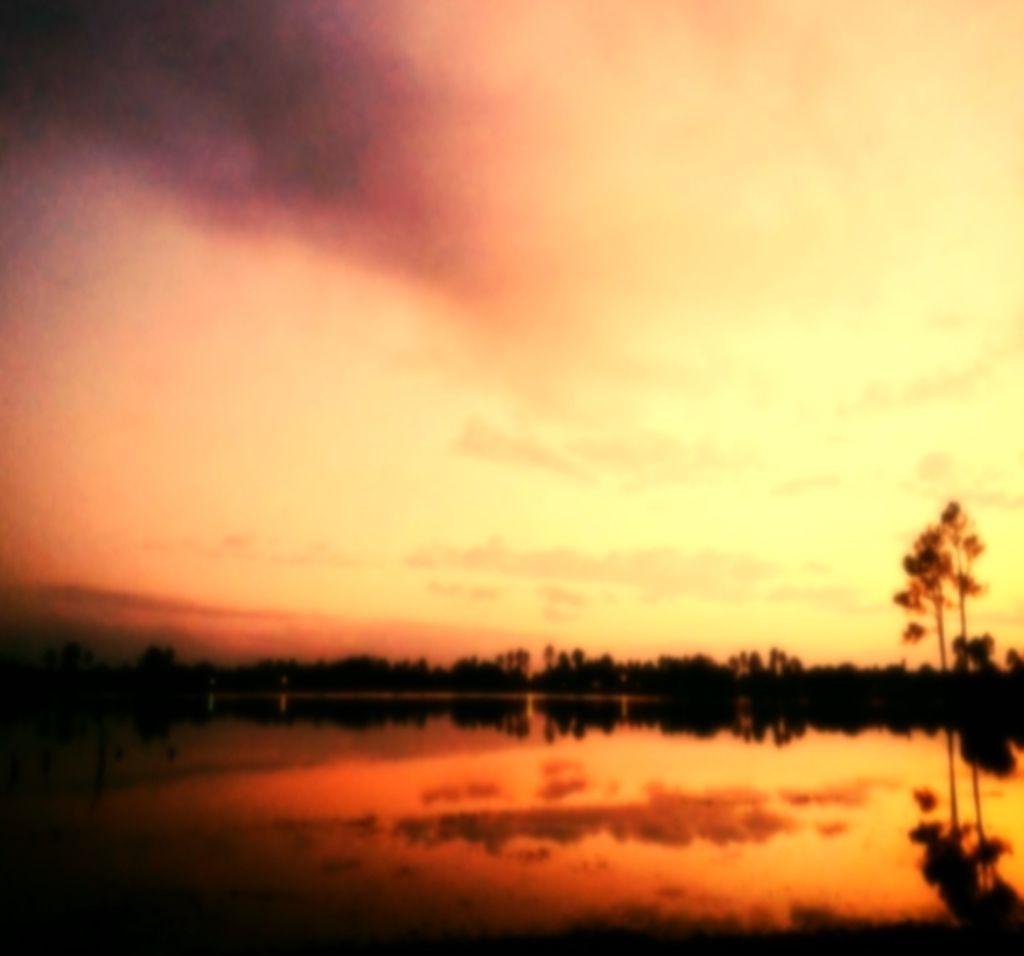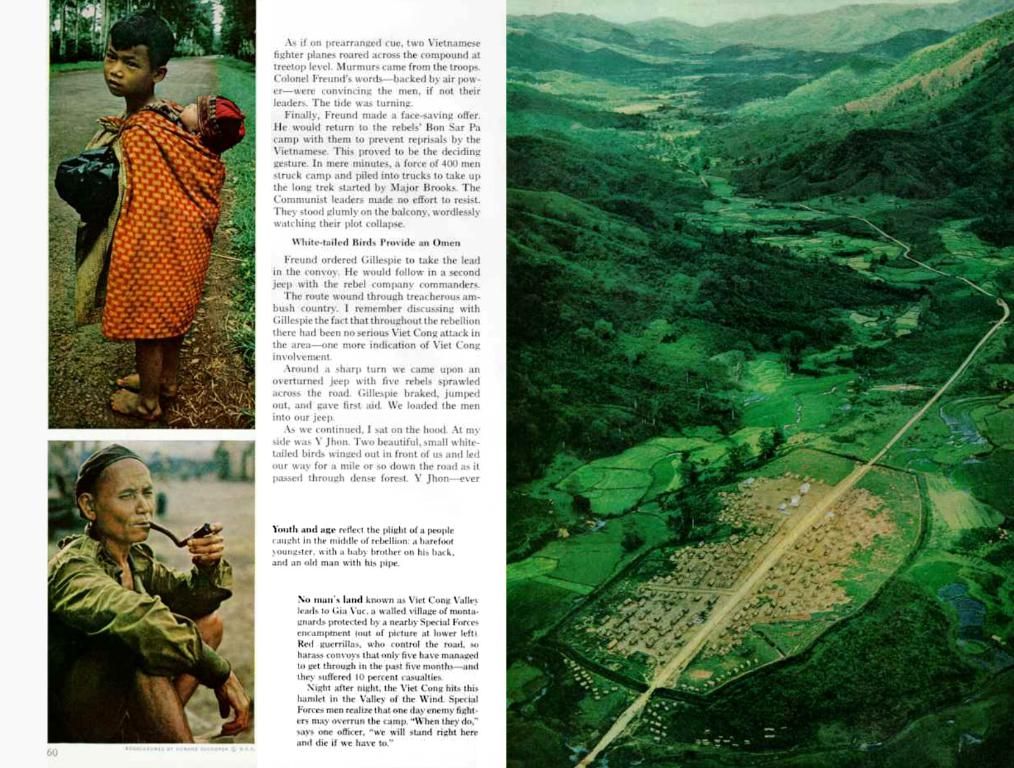Whispered Echoes of Silent Spring: Spotlight on Rachel Carson
Unleashing the Powerhouse: A Deep Dive into Rachel Carson, the Pioneering Environmentalist
Step into the world of Rachel Carson, the revered trailblazer who immersed herself in the natural realm and ultimately dismantled the facade of chemical progress. Born in Springdale, Pennsylvania, in 1907, her insatiable curiosity about nature permeated her every move, driving her to become one of the most iconic scientists and authors in history.
A child of the Pennsylvania farmlands, Rachel found sanctuary in the countryside, cultivating a lifelong love for the environment that would eventually lead her down the path of marine biology. Initially delving into English studies, her ardor for the sciences was ignited by her university professors, eventually propelling her to excel in zoology.
Defying the stifling confines of the Great Depression, Rachel juggled teaching posts and graduate studies, earning her place among the scientific elite. Her impressive accomplishments at the U.S. Bureau of Fisheries honed her ability to distill complex scientific theories for public consumption.
Rachel's acclaim grew with the publication of her books, notably "Under the Sea-Wind" in 1941 and the bestselling "The Sea Around Us" in 1951. These literary triumphs afforded her the luxury of dedicating herself full-time to the written word. Little did she, or the world, know, her pièce de résistance was yet to come.
The 1950s find Rachel's focus shifting from the ocean floor to the earthly canopy, as she painstakingly researched the dark side of chemical advancements. Her insights into the perilous consequences of nonchalant pesticide use culminated in the legendary "Silent Spring." Unveiled in 1962, the book sounded the alarm on ecological catastrophe, confronting the general public and policymakers with the dreadful reality of DDT and its collateral damage.
The publication of "Silent Spring" was met with fierce industry resistance; she was denounced as an alarmist and even a Communist. Yet, Carson's unwavering commitment to exposing the ecological and health risks of pesticide misuse struck a chord with the masses, gathering momentum to challenge established norms.
The resonance of "Silent Spring" transcended mere awareness; it played a crucial role in shaping environmental policy. President Kennedy responded to Carson's claims by instating the President's Science Advisory Committee to investigate her research. With empirical evidence backing her words, the book's credibility skyrocketed, firmly positioning Rachel as an environmental lighthouse.
The years following the book's release saw the birth of significant legislative actions. The establishment of the Environmental Protection Agency (EPA) in 1970 and the subsequent ban on DDT in 1972 can, in part, be attributed to Rachel Carson’s indomitable spirit.
Rachel's legacy thrives as a beacon of environmental stewardship. Her unrelenting tenacity and unwavering commitment to ecological health shaped the modern environmental dialogues that have become crucial in addressing contemporary challenges. Her work continues to galvanize environmental activists, policymakers, and educators worldwide, maintaining its relevance in a world grappling with climate change, biodiversity loss, and sustainable agriculture.
Fast forward to the present day, Rachel Carson's life remains a yardstick for effective environmental advocacy. By integrating her signature scientific rigor with engaging narratives, she crafted a potent method for raising consciousness and driving change. As we navigate the complexities of modern environmental challenges, her legacy provides essential lessons for today's activists, emphasizing the importance of resilience, integrity, and the power of informed advocacy.
Educational institutions are keeping her legacy alive by incorporating her works into their curricula, nurturing the next generation of environmentally conscious citizens. Rachel Carson's impact on the global stage underscores the significance of interdisciplinary approaches that merge science with policy, outreach, and education. The essence of her mission lives on, inspiring us all to be guardians of our planet.
De-Brief:Rachel Carson was a pioneering environmentalist who galvanized the world with her groundbreaking book "Silent Spring." Published in 1962, the book raised public consciousness and policy-maker attention to the harmful effects of DDT and other chemicals on ecosystems, wildlife, and human health. Carson's work forms the cornerstone of the modern environmental movement, impacting policy and legislation, and shaping contemporary environmental dialogues. Her life and work continue to inspire global efforts to protect our planet.
Rachel Carson's groundbreaking book "Silent Spring" significantly influenced both public awareness and policy-making, highlighting the negative impact of chemicals like DDT on the environment, wildlife, and human health. Today, her legacy endures, nurturing the next generation of environmentally conscious citizens through education in health-and-wellness, environmental-science, and women's health, fostering a resilient, interdisciplinary approach that incorporates science, policy, outreach, and self-development for the preservation of our planet.
Her influence extended beyond environmental science, as her work played a pivotal role in shaping educational-and-self-development dialogues, underlining the importance of personal-growth and learning in the face of complex environmental challenges.
Rachel Carson's legacy transcends individual fields, intertwining science, education, personal growth, and environmental advocacy. Her commitment to women's health, learning, and the environment serves as a guiding light for future generations, inspiring them to protect and sustain the world for generations to come.
By embracing Rachel Carson's teachings and tenacity, we can strive for a future that prioritizes environmental health, fosters scientific progress, and nurtures personal development, ultimately creating a sustainable world for all.








